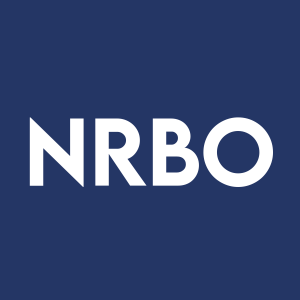NeuroBo Pharmaceuticals Receives First Site IRB Approval for Its Phase 1 Clinical Trial Evaluating DA-1726 for the Treatment of Obesity
First Patient Expected to be Randomized in the Second Quarter of 2024
"With this first site IRB approval, we have achieved another significant milestone in the development of DA-1726, bringing the program one step closer to the clinic," stated Hyung Heon Kim, President and Chief Executive Officer of NeuroBo. "This promising cardiometabolic asset may have a better tolerability profile than currently available GLP-1 agonists due to its balanced activation of GLP1R and glucagon receptors. As previously reported, in mouse models, DA-1726 showed superior weight loss compared to semaglutide (Wegovy®), and its administration resulted in similar weight reduction while consuming more food compared to tirzepatide (Zepbound™). We look forward to working closely with our contract research organization (CRO) partner and our investigators, such as Dr. Prezioso, to start randomizing patients in the second quarter of this year. We expect to report top-line data from the single ascending dose (SAD) Part 1 in the first half of 2025 and the multiple ascending dose (MAD) Part 2 in the second half of 2025."
The Phase 1 trial is designed to be a randomized, placebo-controlled, double-blind, two-part study to investigate the safety, tolerability, pharmacokinetics (PK), and pharmacodynamics (PD) of single and multiple ascending doses of DA-1726 in obese, otherwise healthy subjects. Part 1 will be a single ascending dose (SAD) study, expected to enroll approximately 45 participants, randomized into one of 5 planned cohorts. Each cohort will be randomized in a 6:3 ratio of DA-1726 or placebo. Part 2 will be a multiple ascending dose (MAD) study, expected to enroll approximately 36 participants, who will be randomized at the same 6:3 ratio into 4 planned cohorts, each to receive 4 weekly administrations of DA-1726 or placebo.
The primary endpoint will assess the safety and tolerability of DA-1726 by monitoring adverse events (AEs), serious adverse events (SAEs), treatment emergent adverse events (TEAEs) and AEs leading to treatment discontinuation. Secondary endpoints include the PK of DA-1726, assessed via serum concentrations over time and metabolite profiling at the highest doses of DA-1726. Exploratory endpoints will include the effect of DA-1726 on metabolic parameters, cardiac parameters, fasting lipid levels, body weight, waist circumference and body mass index (BMI), among others.
For more information on this clinical trial, please visit: www.clinicaltrials.gov NCT06252220.
About DA-1726
DA-1726 is a novel oxyntomodulin (OXM) analogue functioning as a GLP1R/GCGR dual agonist for the treatment of obesity and NASH that is to be administered once weekly subcutaneously. DA-1726 as a dual agonist of GLP-1 receptors (GLP1R) and glucagon receptors (GCGR), leading to weight loss through reduced appetite and increased energy expenditure. DA-1726 has a well understood mechanism and, in preclinical mice models, resulted in improved weight loss compared to semaglutide and cotadutide (another OXM analogue).
About NeuroBo Pharmaceuticals
NeuroBo Pharmaceuticals, Inc. is a clinical-stage biotechnology company focused on transforming cardiometabolic diseases. The company is currently developing DA-1241 for the treatment of Metabolic Dysfunction-Associated Steatohepatitis (MASH) and Type 2 Diabetes Mellitus (T2DM), and is developing DA-1726 for the treatment of obesity. DA-1241 is a novel G-protein-coupled receptor 119 (GPR119) agonist that promotes the release of key gut peptides GLP-1, GIP, and PYY. In preclinical studies, DA-1241 demonstrated a positive effect on liver inflammation, lipid metabolism, weight loss, and glucose metabolism, reducing hepatic steatosis, hepatic inflammation, and liver fibrosis, while also improving glucose control. DA-1726 is a novel oxyntomodulin (OXM) analogue that functions as a glucagon-like peptide-1 receptor (GLP1R) and glucagon receptor (GCGR) dual agonist. OXM is a naturally-occurring gut hormone that activates GLP1R and GCGR, thereby decreasing food intake while increasing energy expenditure, thus potentially resulting in superior body weight loss compared to selective GLP1R agonists.
For more information, please visit www.neurobopharma.com.
Forward Looking Statements
Certain statements in this release may be considered forward-looking statements within the meaning of the Private Securities Litigation Reform Act of 1995. Words such as "believes", "expects", "anticipates", "may", "will", "should", "seeks", "approximately", "intends", "projects," "plans", "estimates" or the negative of these words or other comparable terminology (as well as other words or expressions referencing future events, conditions or circumstances) are intended to identify forward-looking statements. Forward-looking statements are predictions, projections and other statements about future events that are based on current expectations and assumptions and, as a result, are subject to risks and uncertainties. Many factors could cause actual future events to differ materially from the forward-looking statements in this release, including, without limitation, those risks associated with NeuroBo's ability to execute on its commercial strategy; the timeline for regulatory submissions; ability to obtain regulatory approval through the development steps of NeuroBo's current and future product candidates, the ability to realize the benefits of the license agreement with Dong-A ST Co. Ltd., including the impact on future financial and operating results of NeuroBo; the cooperation of our contract manufacturers, clinical study partners and others involved in the development of NeuroBo's current and future product candidates; potential negative interactions between our product candidates and any other products with which they are combined for treatment; NeuroBo's ability to initiate and complete clinical trials on a timely basis; our ability to recruit subjects for its clinical trials; whether NeuroBo receives results from NeuroBo's clinical trials that are consistent with the results of pre-clinical and previous clinical trials; impact of costs related to the license agreement, known and unknown, including costs of any litigation or regulatory actions relating to the license agreement; effects of changes in applicable laws or regulations; effects of changes to NeuroBo's stock price on the terms of the license agreement and any future fundraising; and other risks and uncertainties described in our filings with the SEC. Forward-looking statements speak only as of the date when made. NeuroBo does not assume any obligation to publicly update or revise any forward-looking statements, whether as a result of new information, future events or otherwise, except as required by law.
Contacts:
NeuroBo Pharmaceuticals
Marshall H. Woodworth
Interim Chief Financial Officer
+1-857-299-1033
marshall.woodworth@neurobopharma.com
Rx Communications Group
Michael Miller
+1-917-633-6086
mmiller@rxir.com
![]() View original content:https://www.prnewswire.com/news-releases/neurobo-pharmaceuticals-receives-first-site-irb-approval-for-its-phase-1-clinical-trial-evaluating-da-1726-for-the-treatment-of-obesity-302075572.html
View original content:https://www.prnewswire.com/news-releases/neurobo-pharmaceuticals-receives-first-site-irb-approval-for-its-phase-1-clinical-trial-evaluating-da-1726-for-the-treatment-of-obesity-302075572.html
SOURCE NeuroBo Pharmaceuticals, Inc.







